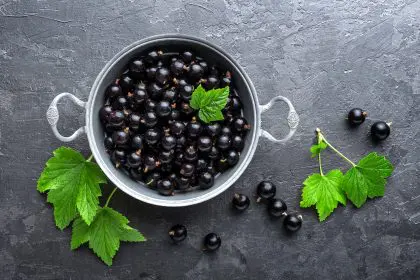Protein serves as a fundamental building block for virtually every bodily system, yet many Americans struggle to consume adequate amounts throughout their busy days. As research continues to highlight the benefits of higher protein intake for everything from muscle preservation to appetite regulation, the importance of incorporating protein-rich snacks between meals has gained newfound attention among health professionals and consumers alike.
The science behind protein’s essential role
Protein functions as one of the body’s most critical macronutrients, performing numerous vital functions that extend far beyond simply building muscle. This essential nutrient creates the foundation for healthy cellular structures, maintains skeletal integrity, supports immune function, and facilitates the production of crucial hormones and neurotransmitters that regulate nearly every bodily system.
Research consistently demonstrates that consuming adequate protein yields significant health benefits. These include improved body composition with greater lean muscle mass, enhanced weight management through increased satiety, better blood sugar regulation, and expedited recovery following physical activity. The physiological impacts of sufficient protein intake extend to virtually every aspect of health, making it a nutrient worthy of prioritization.
While the Recommended Dietary Allowance suggests 0.8 grams of protein per kilogram of body weight as a minimum threshold, mounting evidence indicates this represents merely a starting point for optimal function. Active individuals often require substantially more—ranging from 1.2 to 2.0 grams per kilogram—to support muscle maintenance, recovery and overall physiological demands. This increased requirement makes strategic snacking an essential component of meeting daily protein goals.
The convenience factor in protein consumption
For many individuals balancing demanding schedules, consuming adequate protein exclusively through traditional meals presents a significant challenge. High-protein snacks offer a practical solution, providing nutrient-dense options that require minimal preparation while delivering substantial nutritional benefits between main meals.
The portability factor proves particularly valuable for professionals, parents, students and active individuals navigating busy days. When carefully selected, these convenient options help bridge nutritional gaps without sacrificing quality or promoting unhealthy eating patterns. The key lies in identifying options that combine high protein content with additional nutritional benefits while avoiding excessive processing, added sugars and artificial ingredients.
Top protein rich portable options
The following 15 high-protein snacks deliver exceptional nutritional value while accommodating on-the-go lifestyles:
Free range turkey sticks contain 12 grams of complete protein per serving with zero carbohydrates, making them ideal for those following low-carb or ketogenic dietary approaches. Their shelf stability eliminates refrigeration concerns, allowing for storage in desks, bags or vehicles without compromise.
Greek yogurt provides an impressive 17 grams of protein in just a three-quarter cup serving, significantly outperforming conventional yogurt varieties. This fermented dairy option also delivers beneficial probiotics that support digestive health while offering a creamy texture that pairs well with fruit, nuts or granola.
Pumpkin seeds offer 8 grams of plant-based protein per quarter-cup serving alongside substantial magnesium content—a mineral crucial for blood sugar regulation, muscle function and stress management. Their satisfying crunch and subtle flavor make them versatile additions to various snack combinations.
Hard-boiled eggs provide over 12 grams of complete protein in a two-egg serving, delivering all nine essential amino acids the body cannot produce independently. Their exceptional nutrient density includes choline for brain health, lutein for eye protection and vitamin D for immune support, making them nutritional powerhouses.
Turkey and cheese roll-ups deliver nearly 20 grams of protein when prepared with quality deli meat and Swiss cheese. This simple combination requires no cooking while offering a satisfying texture and flavor profile. Adding vegetable components like bell pepper strips or cucumber enhances nutritional variety without significantly increasing preparation time.
Nutrient dense options beyond conventional choices
Canned tuna contains an impressive 40.6 grams of protein per standard can, representing one of the most protein-dense portable options available. Beyond protein, tuna provides heart-healthy omega-3 fatty acids that support cardiovascular function and brain health. Low-sodium varieties minimize concerns about excessive salt intake.
Kefir, a fermented yogurt drink, offers 9.21 grams of protein per cup alongside significant probiotic benefits that exceed those found in conventional yogurt. This drinkable option provides exceptional convenience for consumption during commutes or between meetings while supporting gut health and immune function.
Cheese sticks in individually wrapped portions contain approximately 8 grams of protein per serving while delivering calcium for bone health. Their portion-controlled packaging prevents overconsumption while ensuring freshness without additional containers or preparation.
Jerky varieties including beef, turkey and salmon provide concentrated protein sources with extended shelf stability. Quality options made without excessive preservatives or added sugars can deliver upwards of 15 grams of protein per serving, though sodium content warrants consideration for those monitoring salt intake.
Cottage cheese contains up to 19 grams of protein in a 5.3-ounce serving, alongside significant calcium and selenium. Its versatility accommodates both sweet and savory flavor combinations, making it adaptable to varied preferences while providing sustained energy through its combination of protein and slow-digesting casein.
Plant based alternatives for diverse preferences
Edamame in ready-to-eat packages provides 11 grams of complete plant protein in a 26-gram serving. These immature soybeans also deliver fiber that promotes satiety and digestive health, making them particularly effective for managing hunger between meals without excessive calories.
Roasted chickpeas offer 12 grams of protein in a 2-ounce serving alongside substantial fiber content. Their satisfying crunch and adaptability to various seasonings make them appealing alternatives to less nutritious crunchy snacks while providing sustained energy through their balanced macronutrient profile.
Quality protein bars can deliver approximately 14 grams of protein when carefully selected for minimal added sugars and whole food ingredients. The convenience factor makes them particularly valuable during travel or in environments where refrigeration remains unavailable, though ingredient quality varies significantly between brands.
Peanut butter in portable squeeze packs contains 8 grams of protein per serving with healthy monounsaturated fats that support cardiovascular health. This shelf-stable option pairs excellently with fruit for a balanced snack combining protein, healthy fats and beneficial carbohydrates.
Trail mix combinations featuring nuts, seeds and minimal dried fruits provide approximately 6 grams of protein per quarter-cup serving alongside heart-healthy fats and energy-sustaining carbohydrates. The diverse textures and flavors create satisfaction while delivering nutrients that support various bodily functions.
Strategic pairing for optimal nutrition
Maximizing the benefits of protein-rich snacks often involves thoughtful pairing to create balanced nutritional profiles. Combining complementary foods enhances not only macronutrient balance but also micronutrient diversity, supporting overall health more effectively than single-component options.
Pairing protein sources with fiber-rich fruits or vegetables creates more satisfying snacks that regulate blood sugar more effectively. For example, combining cheese with apple slices or turkey sticks with bell pepper strips provides protein alongside fiber, vitamins and antioxidants in a single convenient package.
Healthy fats serve as excellent companions to protein, enhancing absorption of fat-soluble vitamins while promoting satiety. Adding avocado to protein sources or including nuts with yogurt creates more balanced nutritional profiles that sustain energy levels more effectively between meals.
For those with higher caloric needs due to activity levels or growth stages, incorporating complex carbohydrates alongside protein supports energy requirements while facilitating protein utilization. Whole grain crackers with tuna or brown rice cakes with nut butter represent balanced combinations that support active lifestyles.
Quality considerations beyond protein content
While protein quantity remains important, quality considerations extend to numerous additional factors when selecting optimal snack options. Ingredient transparency, processing methods, added sugar content and sodium levels all warrant careful evaluation when building a repertoire of regular snack choices.
Minimally processed options generally provide superior nutritional profiles compared to highly manufactured alternatives, even when protein content appears comparable. Selecting products with recognizable ingredients and minimal additives supports both nutritional goals and long-term health outcomes.
Sodium content deserves particular attention in protein-rich snack categories like jerky, cheese and prepared meat products. Selecting low-sodium varieties or balancing higher-sodium options with fresh produce helps maintain appropriate electrolyte balance throughout the day.
Added sugars frequently appear in seemingly healthy protein options, particularly in flavored yogurts, protein bars and plant-based alternatives. Reading nutrition labels carefully helps identify options with naturally occurring versus added sweeteners, supporting better blood sugar regulation and overall health.
Personalizing protein intake for individual needs
While general guidelines provide valuable starting points, protein requirements vary significantly based on individual factors including activity level, age, health status and specific goals. Consulting qualified healthcare professionals helps determine personalized recommendations that optimize health outcomes.
Registered dietitians can assess current dietary patterns alongside specific health considerations to develop tailored strategies for protein incorporation. Their expertise proves particularly valuable for individuals with specialized needs including athletes, those recovering from illness or injury, pregnant individuals and older adults experiencing age-related muscle loss.
Regular evaluation of protein strategies ensures continued alignment with evolving health goals and life circumstances. As activity levels, weight, age and health status change, protein requirements typically shift accordingly, necessitating periodic reassessment of intake patterns and snack selections.
With thoughtful planning and strategic selection, protein-rich snacks can transform from mere hunger solutions into powerful tools supporting comprehensive health goals. By prioritizing quality alongside convenience, these portable nutrition sources contribute significantly to overall wellbeing while accommodating even the busiest modern lifestyles.















